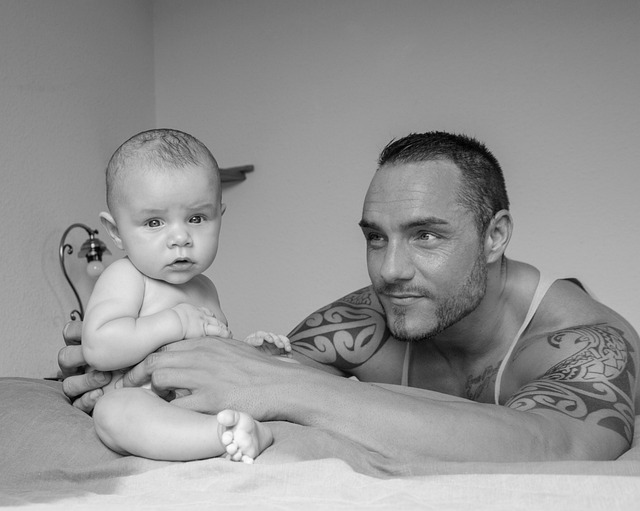Navigating child custody laws and securing legal representation are vital during separation or divorce to safeguard a child's best interests. Jurisdiction-specific rules govern custody decisions, focusing on well-being and stability. Custody lawyers guide parents through mediation, joint or sole custody arrangements, visitation rights, and parenting plans to create fair, mutually beneficial agreements, ensuring the child's needs are met regardless of living situations.
Ensuring a child’s best interests in custody decisions is paramount for their well-being and future. When faced with a custody battle or dispute, understanding the intricate web of laws and rights becomes crucial. This article guides parents through the process, from navigating complex custody agreements and mediation to identifying factors that shape the child’s best interests. We explore various custody arrangements, including joint, sole, and shared, helping you create a robust parenting plan with the guidance of a skilled custody lawyer.
- Understanding Child Custody Laws and Parental Rights
- Navigating Custody Agreements and Mediation Processes
- Factors in Determining the Child's Best Interests
- Creating a Parenting Plan: Joint, Sole, or Shared Custody Arrangements
Understanding Child Custody Laws and Parental Rights

Understanding Child Custody Laws and Parental Rights is a crucial step in ensuring the best interests of a child during custody decisions. Every jurisdiction has its own set of laws governing child custody, focusing on the child’s well-being and stability. When parents face a custody dispute, whether it’s a battle for sole custody or a fight over joint custody and visitation rights, having a clear grasp of these legal principles becomes essential. A custody lawyer or child custody attorney can guide parents through this complex landscape, explaining their parental rights and helping them navigate custody agreements and mediation processes effectively.
Child custody arrangements, including parenting plans, are designed to foster a healthy relationship between the child and both parents. In cases where parents cannot agree on a plan, a court may step in to make a decision based on what it deems to be in the child’s best interests. This often involves considering factors such as each parent’s ability to provide a stable home environment, their history with the child, and the child’s wishes (if age-appropriate). A custody battle can be emotionally taxing, so having legal representation and a solid understanding of one’s rights is vital to protect one’s interest in the outcome.
Navigating Custody Agreements and Mediation Processes

Navigating custody agreements and mediation processes is a critical aspect of ensuring the best interests of a child in any separation or divorce scenario. When parents cannot agree on a custodial arrangement, a custody battle may ensue, leading to a legal process that can be complex and emotionally taxing. In such cases, a custody lawyer specializing in family law plays a pivotal role in guiding parents towards a resolution that prioritizes the child’s well-being and future stability.
Mediation is often encouraged as an effective alternative to litigation. A neutral mediator facilitates open dialogue between both parties, helping them reach a mutually agreeable custody arrangement. This process allows for flexibility and can result in a parenting plan tailored to meet the specific needs of the family. Whether it’s establishing joint custody, where both parents share responsibilities, or determining sole custody with visitation rights for the non-custodial parent, every effort should be made to foster cooperation rather than conflict. The goal is to create a nurturing environment where children can thrive, regardless of the living arrangement.
Factors in Determining the Child's Best Interests

When determining the best interests of a child in custody decisions, several key factors come into play. A custody lawyer or mediator will consider the child’s well-being, stability, and happiness as primary concerns. This includes evaluating each parent’s ability to provide a safe, nurturing environment, access to quality education, and opportunities for social and emotional development. Factors such as parental employment, housing situation, and existing relationships with extended family members are scrutinized to ensure the child’s needs are met.
The court also looks at the history of parenting and each parent’s willingness to cooperate on custody arrangements, including visitation rights and joint custody or sole custody agreements. A parenting plan that facilitates regular and meaningful interaction between the child and both parents is often favored. In cases of a custody dispute, involving a child custody attorney can help navigate the process, ensuring that all relevant factors are considered fairly in court, ultimately aiming to reach a custody arrangement that prioritizes the best interests of the child.
Creating a Parenting Plan: Joint, Sole, or Shared Custody Arrangements

Creating a Parenting Plan is a pivotal step in ensuring the best interests of the child during and after a custody dispute. This plan outlines the arrangements for physical and legal custody, visitation rights, and parental responsibilities. There are several options to consider, including joint custody, where both parents share decision-making power and time with the child, sole custody, where one parent has exclusive rights, or shared custody, offering a balanced approach.
Custody lawyers and mediators can facilitate these discussions, guiding parents towards mutually agreeable solutions that prioritize the child’s well-being and stability. Custody agreements should be detailed, covering aspects like schedule, decision-making processes, financial responsibilities, and emergency protocols. A thoughtful parenting plan not only respects parental rights but also ensures consistent care and support for the child during transitions, fostering a sense of security in their daily lives.
When navigating complex custody decisions, prioritizing the child’s best interests is paramount. By understanding relevant laws, exploring mediation options, and considering key factors like stability and each parent’s role in the child’s life, families can create a nurturing environment. Whether establishing joint, sole, or shared custody arrangements, the goal remains to foster healthy relationships and ensure the child’s well-being with the guidance of a qualified custody lawyer. Remember, a thoughtful parenting plan, guided by legal expertise, is crucial in resolving custody disputes and securing a brighter future for all involved.
